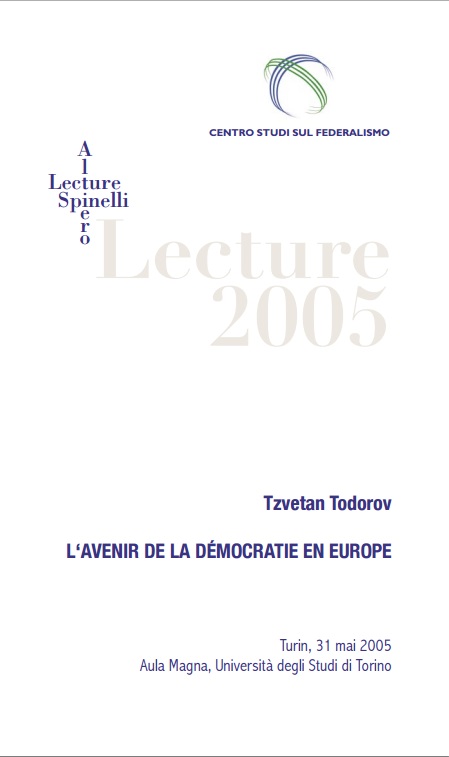The Future of Democracy in Europe

Author: Tzvetan Todorov
Publisher: Torino, Centro Studi sul Federalismo
Year: 2005
Download Lecture (fr)
Tzvetan Todorov was born in Sofia in 1939. In 1963 he moved to Paris where he studied philosophy of language with Roland Barthes. In 1967-68 , he taught at Yale University and became a researcher at the Centre National de la Recherche Scientifique (CNRS) in Paris. From 1983 to 1987 he directed the Centre de recherches sur les arts et le langage (CRAL). After his initial work as a literary critic, concentrating mainly on Russian formalists, Todorov’s interest widened to the philosophy of language, a discipline that he perceives as a part of semiotics. In the 1980s, the themes of diversity and otherness, which he had already addressed through literature, led him to produce research of a philosophical and anthropological nature, such as La Conquête de l’Amérique (1982) and Nous et les autres (1989). Hence, he began to critically re-evaluate the role of the individual in history and the importance of memories of daily life on the part of individuals and peoples. He published Les morales de l’histoire (1991), Face à l’extrême (1991), an intense reflection on the victims of concentration and labour camps, and Une tragédie française: été 1944, scènes de guerre civile (1994), which led him to consider the role of the individual and his/her influence on history. In this period, Todorov became a point of reference for a new western culture. His relentless work led to the completion of further research on the roots and reasons behind the sociability of human beings, culminating in La vie commune (1995), Le jardin imparfait (1998) and an essay on totalitarianism entitled Mémoire du mal, tentation du bien (2000). In conclusion, works such as La passion démocratique (1997) and Le nouveau désordre mondiale: Réflexions d’un Européen (2003) by Benjamin Constant should all be highlighted as reasoned reflections on the geopolitical outlook for Europe and the contemporary world.
